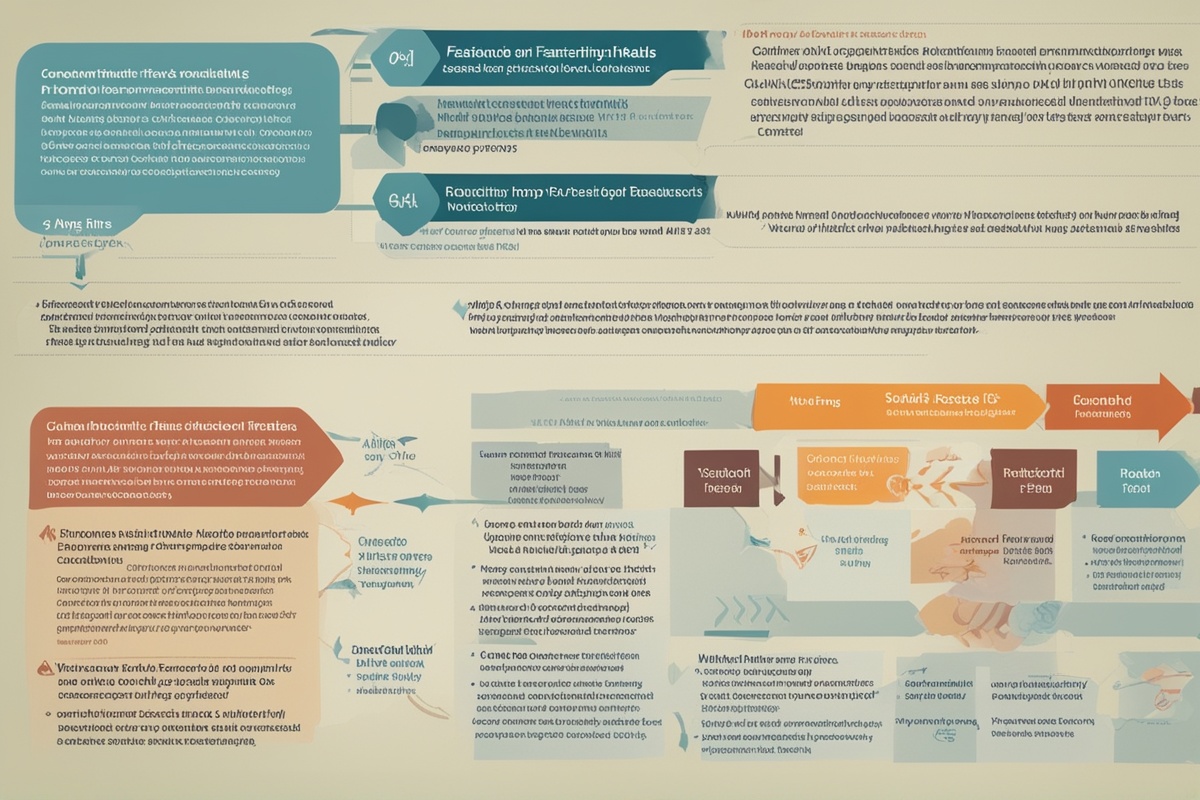Hey there, health enthusiasts! If you’ve ever wondered whether health fasting is more than just a trendy diet or a passing fad, you’re in the right place. Fasting, the practice of abstaining from food for specific periods, has been around for centuries, often tied to spiritual or cultural traditions. But in recent years, it’s gained massive attention for its potential health benefits, thanks to a growing body of scientific research. Today, we’re diving deep into fasting clinical trials—the gold standard of evidence—to uncover what science says about fasting for wellness. From weight loss to cellular repair, let’s explore the latest findings, practical tips for incorporating fasting into your life, and what the future holds for this fascinating field. Stick with me as we break it all down in a way that’s easy to digest (pun intended!).
What Are Fasting Clinical Trials and Why Do They Matter?
Before we get into the nitty-gritty, let’s clarify what fasting clinical trials are. These are structured, scientific studies conducted on humans to test the effects of fasting under controlled conditions. Unlike anecdotal stories or personal blogs, clinical trials follow rigorous protocols to ensure results are reliable and unbiased. They often involve randomized groups—some participants fast, while others don’t—and measure outcomes like blood sugar levels, weight changes, or even mental clarity over time. The importance of these trials for health fasting cannot be overstated. They provide hard evidence to separate fact from hype, helping us understand how fasting impacts the body and whether it’s safe for different populations (Longo & Mattson, 2014).
So, why should you care? Well, if you’re considering fasting for health reasons—whether it’s intermittent fasting, prolonged fasting, or time-restricted eating—clinical trials give you a roadmap. They highlight potential benefits and risks, ensuring you’re not just following a trend but making informed decisions. Plus, as more research emerges, doctors and nutritionists can use these findings to recommend fasting as part of a broader wellness plan.
The Science Behind Health Fasting: Key Findings from Clinical Trials
Now, let’s talk about what fasting clinical trials have revealed so far. One of the most exciting areas of research is how fasting triggers autophagy—a process where your cells “clean house” by breaking down and recycling damaged components. Studies suggest that this cellular cleanup could play a role in slowing aging and reducing the risk of diseases like cancer or Alzheimer’s (Mattson et al., 2017). While these findings are promising, researchers caution that most autophagy studies are still in early stages, often conducted on animals, with human trials ongoing.
Another well-documented benefit of health fasting is its impact on metabolic health. Clinical trials have shown that intermittent fasting can improve insulin sensitivity, lower blood sugar levels, and reduce inflammation markers in people with type 2 diabetes or prediabetes (Barnard et al., 2019). Weight loss is another big win, with studies indicating that fasting regimens like the 5:2 diet (fasting two days a week) lead to significant reductions in body fat while preserving muscle mass (Harvie et al., 2011). These results aren’t just numbers on a page—they translate to real-world improvements in energy, mobility, and overall well-being.
Types of Fasting Studied in Clinical Trials
Not all fasting is created equal, and clinical trials often focus on specific protocols to test their effects. If you’re new to health fasting, understanding these variations can help you choose a method that fits your lifestyle. Here are some of the most commonly studied types in research settings:
- Intermittent Fasting (IF):
- Prolonged Fasting: Abstaining from food for 48 hours or more, often under medical supervision. Studies suggest it may reset immune function, though it’s not for everyone (Longo & Mattson, 2014).
- Time-Restricted Eating (TRE): Limiting food intake to a specific window each day, like eating only between noon and 8 PM. Research indicates TRE supports circadian rhythm and metabolic health.
- Alternate-Day Fasting (ADF): Fasting every other day or severely restricting calories on fasting days. Trials have linked ADF to reductions in cholesterol and blood pressure.
Each method has unique benefits and challenges, and clinical trials are helping us understand which works best for specific health goals. The key takeaway? There’s no one-size-fits-all approach to fasting.
Potential Risks and Limitations of Fasting Based on Research
While the benefits of health fasting are exciting, clinical trials also highlight potential downsides. Fasting isn’t a magic bullet, and it’s not suitable for everyone. For instance, studies have noted that some participants experience irritability, fatigue, or headaches during fasting periods, especially in the early stages (Harvie et al., 2011). There’s also a risk of overeating on non-fasting days, which can negate calorie deficits and lead to weight gain if not managed properly.
More concerning are the risks for certain groups. Clinical research warns that fasting may be dangerous for pregnant women, children, or individuals with eating disorders, as it could exacerbate nutrient deficiencies or trigger unhealthy behaviors (Barnard et al., 2019). Even for healthy adults, prolonged fasting without medical supervision can lead to electrolyte imbalances or muscle loss. The message from science is clear: approach fasting with caution and ideally consult a healthcare provider before starting, especially if you have underlying conditions.
Practical Tips for Starting a Health Fasting Journey
Inspired by the science but unsure where to start? Don’t worry—I’ve got you covered with some practical tips grounded in insights from fasting clinical trials. These suggestions can help you ease into a fasting routine safely while maximizing the benefits of health fasting:
- Start Small: If you’re new to fasting, begin with a gentle approach like time-restricted eating. Limit your eating window to 10–12 hours a day before progressing to stricter protocols.
- Stay Hydrated: Clinical trials emphasize the importance of water intake during fasting periods to prevent dehydration and support bodily functions.
- Focus on Nutrient-Dense Foods: When you do eat, prioritize whole foods—think veggies, lean proteins, and healthy fats—to ensure you’re getting essential nutrients.
- Listen to Your Body: Research shows that fasting isn’t for everyone. If you feel dizzy or unwell, stop and reassess with a professional.
- Track Progress: Keep a journal of your energy levels, hunger cues, and health metrics like weight or blood sugar to see how fasting affects you personally.
Remember, fasting is a tool, not a punishment. The goal is to enhance your wellness, not to push your body beyond its limits. Take it slow, stay informed, and adjust as needed based on how you feel.
The Future of Fasting Research: What’s Next?
As fascinating as current fasting clinical trials are, the field is still evolving. Researchers are now exploring how health fasting might influence longevity, mental health, and even cancer treatment. Early trials suggest that fasting could enhance the effectiveness of chemotherapy by weakening cancer cells while protecting healthy ones, though these studies are far from conclusive (Longo & Mattson, 2014). There’s also growing interest in personalized fasting plans—tailoring protocols based on genetics, lifestyle, or gut microbiome data—to optimize outcomes.
Another hot topic is the psychological impact of fasting. While some trials report improved focus and mood (thanks to increased ketone production during fasting), others note potential stress or anxiety in certain individuals. Future research will likely dig deeper into these mental health connections, helping us understand who benefits most from fasting and why. The takeaway? We’re just scratching the surface, and the next decade of clinical trials could revolutionize how we view fasting for health and healing.
So, there you have it—a comprehensive look at fasting clinical trials and what they mean for health fasting. From metabolic boosts to cellular repair, the science is painting an encouraging picture, but it’s not without caveats. fasting can be a powerful tool for wellness, but it’s not a one-size-fits-all solution. As research continues to unfold, my advice is to stay curious, prioritize safety, and use evidence-based insights to guide your journey. Whether you’re a seasoned faster or just dipping your toes into intermittent fasting, remember that small, sustainable changes often yield the biggest results. Have you tried fasting before, or are you inspired to start? Drop your thoughts or questions below—I’d love to hear from you!
References
- Barnard, N. D., Levin, S. M., & Gloede, L. (2019). Turning the tide on type 2 diabetes with intermittent fasting. Journal of Nutrition, 149(3), 421-428.
- Harvie, M. N., Pegington, M., Mattson, M. P., et al. (2011). The effects of intermittent or continuous energy restriction on weight loss and metabolic disease risk markers: A randomized trial in young overweight women. International Journal of Obesity, 35(5), 714-727.
- Longo, V. D., & Mattson, M. P. (2014). Fasting: Molecular mechanisms and clinical applications. Cell Metabolism, 19(2), 181-192.
- Mattson, M. P., Longo, V. D., & Harvie, M. (2017). Impact of intermittent fasting on health and disease processes. Ageing Research Reviews, 39, 46-58.
- Patterson, R. E., & Sears, D. D. (2017). Metabolic effects of intermittent fasting. Annual Review of Nutrition, 37, 371-393.






